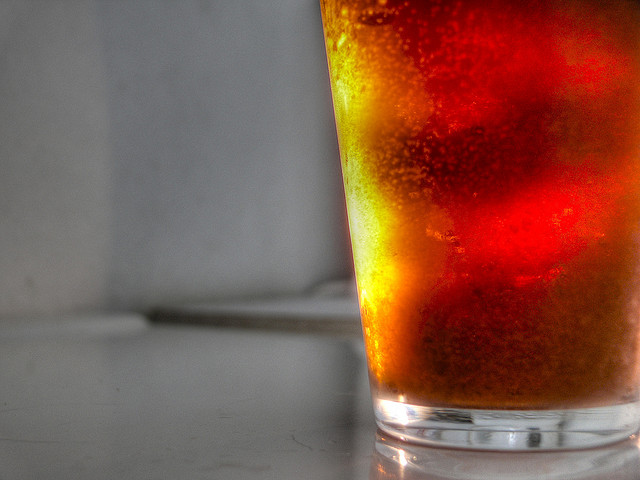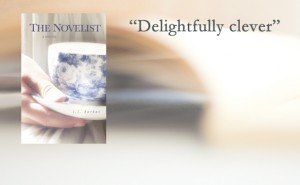Some define the boundaries of the American south by way of the Mason Dixon line. Others define its lines by allegiances during the War of Northern Aggression. Frankly, I find both such delineations to be crude and lacking in nuance. No, I do not ascribe to traditional notions of defining the South. Instead, I reckon its boundaries by one simple metric—sweet tea prevalence.
For instance, if you live in a town where less than 75 percent (three-kortahs, if you will) of the local restaurants serve sweet tea, I could argue that you do not live in the land of genteel southern graces. By this metric, I view the western-most boundary of the South as terminating somewhere around East Little Rock—that is, if you take into account the Cracker Barrel on I-40.
There is not a single more recognizable southern drink than sweet tea, except maybe Kentucky bourbon. And if one were to combine the former with the latter, one might find a sort of southern drink Nirvana. One might begin extolling the virtues of the sphagnum moss and seersucker suits and find oneself prone to glowing personifications about the Mighty Mississippi (that twisted lover who kisses crops one minute and breaks levees and your heart the next).
In the summer of ’98 I met a Southern Baptist granny from Atlanta who brewed tea as sweet as a baby’s laugh. I once asked her for the recipe, the proper proportions of sugar to black tea. She leaned in and whispered, “it’s a secret.” I laughed, certain that she was engaging in a bit of Georgian jocularity, and reiterated my request. “After all, ” I said, “it’s just tea and sugar, right?” She looked at me with one cocked eyebrow and said, “Oh no, honey. There’s much more to proper sweet tea than that.”
I experimented for three years to decipher her version of the southern staple, and although I found that brown sugar and honey gives a bit extra character, truth is, her secret was nothing more than the use of the most ancient of feminine wiles. Mystery makes everything taste better in the end. Some southern ladies still know that to be true.
This week I’ll brew a batch of sweet tea and watch summer give way to fall. I don’t live in the South, at least not by my metric. So when I sip it, I’ll think of my family in Louisiana. I’ll remember my wife’s Alabama heritage, the dirt roads where she learned to love a good story. I’ll remember my summer in Atlanta and some of the best secrets kept.
Will you join me? Brew yourself a batch of sweet tea and join me for a found poetry prompt. Draw words for your found poem from this piece, the back of the Lipton box, or your favorite copy of Southern Living (is there a northern such version of said magazine?). Perhaps your poetry could extol the virtues of this southern staple drink. Or perhaps you’d like to explore your own regional tea preferences. Whichever you prefer, let this week’s poetry prompt push you into exploring regional culture and geography, all by way of tea.
Now, let’s brew some creative works. Who’s first?
Tweetspeak’s September Tea For Two Prompt
This month’s found poem theme at Tweetspeak is Tea for Two, and we’re using words and phrases from tea (or coffee) related products as the prompt. We’d love you to join with is. How do you participate?
1. Look through your pantry and grab some tea or coffee packages, or any other tea or coffee related products you may have in your house.
2. Arrange a found poem containing words from the products (or mark up a magazine as above). Make sure your poems touch on themes of tea or coffee.
3. Tweet your poems to us. Add a #tea42 hashtag so we can find it and maybe share it with the world.
4. If you aren’t a twitter user, leave your found poem here in the comment box.
5. Each week we’ll share a few of the poems. At the end of the month, we’ll choose a winning poem and ask the winner to record his or her poem to be featured in one of our upcoming Weekly Top 10 Poetic Picks.
Last week, Maureen Doallas played along and wrote this piece that expresses sensual nuance:
Tea, No Sympathy
Bigelow brews up basic black;
Lipton warms with its touch
of tart Tuscan lemon. But I see
these aren’t your cups of tea.
With them, you get no yin, no
yang, no sweet and bitter blend
of Golden Flower, no accents
of lanky Jasmine Fairy Maidens
quick to unfold their charms
in the tallest sipping glasses. You
tend to trend to gourmet tastes,
need all the tea in China to brew
old Harney’s Golden Monkey,
uncovering leaves’ clearest notes
of honey to sweeten and loosen
your Rumi’s tongue. “Take tea
with me” comes in a silken sachet
I need not strain to decipher. Oh,
to get tippy in Assam’s best garden,
to unwrap your golden Dikom buds
as I unwind my pearls and purple sari.
Thank you for all your submissions. Now…who’s first this week?
Photo by Arria Belli, Creative Commons via Flickr. Post by Seth Haines.
_____________________
Purchase The Novelist, by L.L. Barkat now!
- Become a Better Writer: Fly Fishing Artist Date - June 6, 2014
- No Cat Poetry for Fierce Dog Lovers - November 22, 2013
- Exploring Poetry: Penning a Ghazal - October 18, 2013


Glynn says
As my grandmother in Shreveport used to say about her tea, would you like some tea with your sugar?
Maureen Doallas says
Northern Virginia, where I live, is definitely not the South and I admit to wanting to sugar my own tea my own way. An hour’s drive or two into the mountains, however, and the Commonwealth slows and shows its southern pride.
Wonderfully written post, Seth. Thank you for highlighting my contribution to last week’s piece.
L. L. Barkat says
I like the *idea* of sweet tea. So maybe if I just have the *idea* of writing a sweet-tea poem, that will go nicely with this sentiment 😉
Jessica Y says
Sweet Tea and Red Beans on a Monday for this Louisiana lady.
Seth Haines says
Yes MAM! Unless it’s May. Then it’s crawfish tails and sweet tea.
Glynn says
Crawfish tails and Dixie beer.
Jessica Y says
Yes! I have more pics of my daddy in front of a table of crawfish with a Dixie beer than u can
Imagine. Good stuff.
Megan Willome says
Mine’s too long for Twitter, so here it is. The things in capitals are from my tea boxes & bags–eight different blends at the moment.
REDUCE, REUSE
it didn’t feel like a Revolution
or Tea’s Role In A Healthy Lifestyle
when i did not put sugar in my tea.
i simply never did.
who needs sugar when you have Litchi from China
White Chai from India (well,
there’s an elephant on the box)
French letters on a pouch of Japanese Sencha.
Steep Yourself, not your bee pollen,
no cream, no milk, no lemon
just A Harmonious Blend.
For Best Karma, Please Recycle.
Maureen Doallas says
Sweet Georgia,
she’s put me on ice
to still my swelling
Southern Comfort heart.
Her charm’s a potent potion,
a Chatham Artillery Punch
for Savannah rebs
more likely to bear arms
than sip a regent’s weak black tea
on a sultry summer morn.
Punch, some called it,
and spiked it was,
and even in Charleston
society imbibed, decanting
their St. Cecilia at an annual ball
where dizzy heads on shoulders
fell, light as blooming camellias.
Into loaf sugar and rich cream
some Kentucky housewife stirred
a bottle of claret, her pitcher
strained of what earlier was boiled
and brewed, and belles in Old Virginia
made do, too, knew to add a squeeze
of lemon to keep lips puckering.
As far north as Boston, turns out,
some liked it hot, more liked it cold,
and not even Prohibition could end
what church-going ladies took
straight up, full-strength, and fully chilled.
Diana Trautwein says
Loved this post, Seth. Although sadly, I cannot abide sweet tea. Like it straight, I guess. So. . . a southerner I am not. Can we still be friends?
Jen Rose says
As badly as I want to be Southern…. neither can I. 🙂
Sweet tea reminds me of my grandma though, so I think this prompt has my creative wheels spinning a little.
Monica Sharman says
You say it with a hard ‘g’:
gen-mai-cha, like the beating
of a taiko drummer, his headband
holding in bursting rhythm. I drink
this tea and have to fall, knees
and shins flat on the tatami mat,
buttocks on heels, and the roasty
aroma of popped rice makes me
remember, makes me nostalgic for
a place I’ve never seen.
Donna says
I love your entire poem, but especially the last line…. nostalgic for a place I’ve never seen…
it speaks to me.